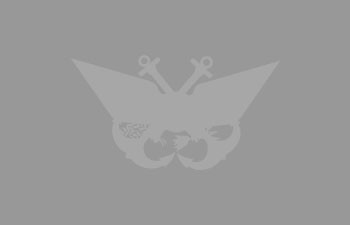
A Coast Guard aircrew aboard a HC-130 Hercules airplane patrols the Pacific Northwest crab fishing fleet prior to the pre-soak opening for commercial crab season, Jan. 1, 2016.
The aircrew assisted Washington and Oregon State Fish and Wildlife officers patrol and monitor the fishing fleet enforcing the permitted season opening.
U.S. Coast Guard video by Petty Officer 1st Class Levi Read
An aircrew aboard an HC-130 Hercules airplane, from Coast Guard Air Station Sacramento, flies over the Washington and Oregon crab fishing fleet Jan. 1, 2016.
The aircrew was assisting Washington and Oregon state fish and wildlife officials monitor the pre-soak period for the crab season opener scheduled for Jan. 4.
U.S. Coast Guard photo by Petty Officer 1st Class Levi Read
The Washington and Oregon crab fishing fleet transits from various ports along the Oregon and Washington coastline toward the crab soaking grounds prior to the opening of the pre-soak period Jan. 1, 2016.
The commercial crab season officially opens at 9 a.m. Jan. 4, 2016, and that is when the crab fishing fleet is allowed to start collecting their pre-soaked crab pots.
U.S. Coast Guard photo by Petty Officer 1st Class Levi Read
Washington Department of Fish and Wildlife Officer Todd Dielman monitors a commercial fishing vessel off the coast of Washington with thermal imaging aboard a Coast Guard HC-130 Hercules airplane with the assistance of Coast Guard Petty Officer 3rd Class Shannon Fieste, Jan. 1, 2016.
Southern Washington's commercial crab season begins Jan. 4, but fishermen are allowed a pre-soak period beginning at 9 a.m. Jan. 1.
U.S. Coast Guard photo by Petty Officer 1st Class Levi Read
Petty Officer 3rd Class Shannon Fieste (center), from Coast Guard Guard Air Station Sacramento, Calif., controls a thermal-imaging camera aboard an HC-130 Hercules airplane assisting Washington Department of Fish and Wildlife Officer Todd Deilman (top) and Oregon State Trooper Trygve Klepp monitor commercial fishing vessels from both states Jan. 1, 2016.
The Coast Guard is assisting both state agencies in patrolling the Pacific Northwest coast to enforce laws, protect the fleet and protect the crab fishery.
U.S. Coast Guard photo by Petty Officer 1st Class Levi Read
ASTORIA, Ore. — The Coast Guard assisted representatives of the Washington and Oregon Departments of Fish and Wildlife patrol the waters of the Pacific Northwest during the pre-soak period of the commercial Dungeness Crab season, which opens Jan. 4, 2015. The Dungeness Crab Season begins Monday from the California/Oregon border north to Destruction Island, Washington including Willapa Bay and Grays Harbor. The Northern Washington to U.S./Canada border Dungeness Crab season will begin at a date to be announced later, but no sooner than January 15. There are an estimated 225 Washington permitted vessels expected to participate in crabbing and an estimated 425 Oregon permitted vessels and there are 75 vessels that are permitted in both Oregon and Washington. Although the Dungeness Crab season will remain open through the summer of 2016, historically up to 50 percent of the annual catch may be landed in the first two weeks of the season, with 80 to 90 percent harvested during the first 2 to 3 months. Due to the one month delay to the season start, if catch rates are successful activity may remain moderate to heavy through early March. Crabbing is a state regulated fishery, so the Coast Guard assists its partner agencies when called upon with personnel or assets to patrol the fishing grounds. The Coast Guard's primary concern is the safety of the fishing fleet. This is accomplished through both preventative measures, such as mandatory dockside safety examination requirements and voluntary training programs, and rapidly responding to marine casualties if and when they occur to save lives and property. "Dungeness crab season coincides with some of the most dangerous sea conditions we encounter on the Pacific Northwest Coast and every year the Coast Guard responds to numerous cases of vessels in distress,” said Capt. Dan Travers, Commander Coast Guard Sector Columbia River. “Having the proper safety and survival equipment up to date and installed properly could be the difference between life and death." The Coast Guard will be on high alert for increased search-and-rescue concerns that is associated with this fishery, and will also enforce applicable laws and safety regulations.
